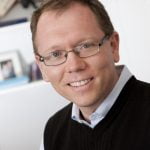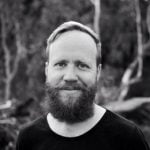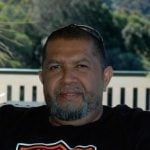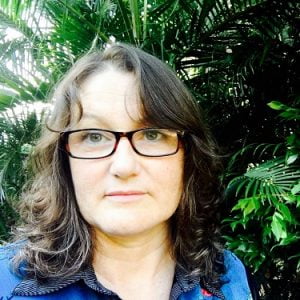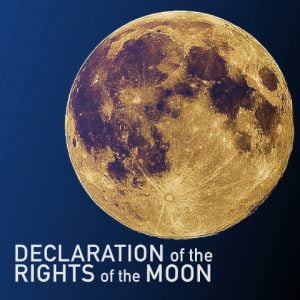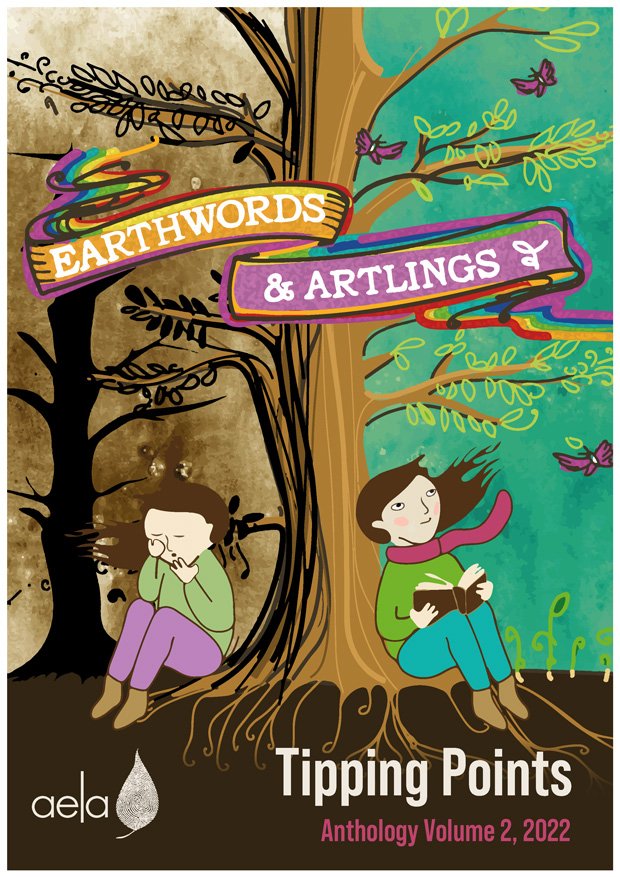For information about our morning/plenary speakers, please scroll down
For information about our afternoon/parallel speakers and presenters, please click here
Brian J. Adams is the Director of the Centre for Interfaith & Cultural Dialogue at Griffith University. As a former Rotary Peace Fellow, Brian is primarily focused on promoting respect and understanding across cultural, religious and organisational boundaries. This work is supported by a Ph.D. (political science) in deliberative dialogue and two Master degrees in community development and conflict resolution. Brian’s 20+ years of work in Africa, Europe, North America and the Asia-Pacific certainly brings a compelling international perspective to the ICD. His background in mediation, conflict management and dialogue facilitation strengthens the Centre’s ability to address some of the great challenges facing the world today, while his proficiency in English, French and Swahili allow him to expand the work of the ICD to marginalised groups in Australia and to troubled regions across the globe.
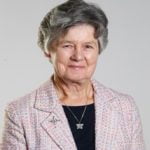
Anne Boyd is a member of the EarthSong Coordinating Team. After a long career in education, her awareness of the interconnectedness of social and ecological justice was a catalyst for joining with others who felt a call to a new way of being on Earth. Over time EarthSong has become an avenue for celebrating all of creation as a sacred, spiritual and ongoing event. Anne enjoys facilitating programs with a broad range of participants throughout Australia and elsewhere and until recently a second major focus of her work was the editing of the EarthSong journal. This publication explored ecology, spirituality and education within an Australian context. One of her most enjoyable and fruitful pastimes is the growing of food in her home garden.
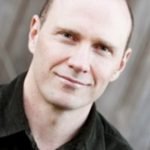
Hugh Breakey is a Research Fellow at Griffith University’s Institute for Ethics, Governance and Law, Australia whose research stretches across the philosophical sub-disciplines of political theory, legal philosophy, normative ethics and applied philosophy. Hugh’s work explores the ethical challenges arising in fields such as peacekeeping, climate change, sustainable tourism, private property and international law. He has taught philosophy and ethics at the University of Queensland, Queensland University of Technology and Bond University. Since 2013, Hugh has served as President of the Australian Association for Professional and Applied Ethics. He is currently working on two federally funded research projects, one on professionalization of the financial services industry, and the other on the integrity of the global climate regime.
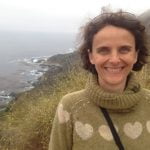
Emma Brindal is the founder of WiseEarth Education (
https://wiseeartheducation.com/), through which she runs workshops and programs to nurture and build respect for our planet. She is inspired by the principles and practices of Deep Ecology, Bioregionalism and Place-Based Education; and believes that understanding the interconnectedness of all life through experience is key to bringing about a Life Sustaining Society for all beings. Emma also works part-time at Northey Street City Farm where she runs Earth connection programs for children and teaches permaculture.
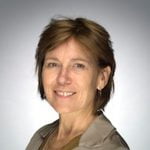
Marian Drew is one of Australia's most significant contemporary photographic artists. Drew's practice, spanning more than twenty years, is characterised by innovation and exploration of photo-media. She creates still life mementos depicting Australian native animals placed on a table with linen and other domestic objects such as fine china, candles, fruit and vegetables. Drew draws deep inspiration from the natural world and its processes, reflected in her art. She has held over 20 solo shows across Australia, United States, France and Germany and is currently represented by galleries in United States and Australia.
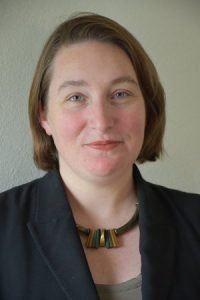
Ellen Geraghty is the Executive Officer of Rahamim Ecology Centre, a ministry of the Institute of the Sisters of Mercy of Australia and Papua New Guinea specialising in environmental education, spirituality and advocacy.
Ellen has previously worked with the NSW Parliamentary Counsel's Office, the Law Council of Australia's Environment and Planning Law Group, the National Environmental Law Association and the Australian Earth Laws Alliance.
Among other things she has run her own business, worked on the Hotspots Fire Project with the Nature Conservation Council and managed a community garden. She has also undertaken formal training in permaculture and seed saving for work in developing countries and has worked on a range of properties in the Netherlands, France and Mexico.
Ellen studied science and law at Macquarie University.
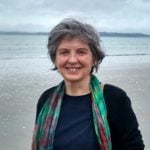
Sally Gillespie’s doctoral thesis from Western Sydney University explored the psychological experience of climate change engagement, and is the basis for her upcoming book Sea Change: How Engaging with Climate Change Changes Us. Sally practised as a Jungian psychotherapist for over twenty years and authored two books on dreams and psychotherapy. She is a member of Psychology for a Safe Climate and the Climate Wellbeing Network, and has written book chapters and presented numerous conference papers and workshops on climate change psychology. Sally has also lectured on ecopsychology and cultural change in the Social Ecology Department of Western Sydney University.
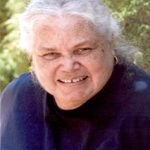
Mary Graham is a Kombu-merri person through her father’s heritage and Wakka Wakka clan through her mother’s heritage. With a career spanning more than 30 years, Mary has worked across several government agencies, community organisations and universities. Mary has been a dedicated lecturer with the University of Queensland, teaching Aboriginal history, politics and comparative philosophy, Mary has also lectured nationally on these subjects, and developed and implemented the core university subjects of ‘Aboriginal Perspectives’, ‘Aboriginal Approaches to Knowledge’ and at the post-graduation level ‘Aboriginal Politics’.
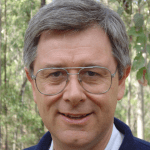
Cam Mackenzie is principal of the Amaroo Environmental Education Centre – Queensland and has been past Vice President and Treasurer of the Australian Association of Environment Education. He is also the current President of the Darling Downs Environment Council. He has been involved in environmental education since 1980 and has been a principal advisor - environmental sustainability for the Department of Education and Training in Queensland.
He represented Australia on the Environment and Schools Initiative, a network of environmental educators based in Europe, and the Queensland representative on the National Environmental Education Council, National Environmental Education Network and Australian Sustainable Schools Initiative working group. In 2011 he was awarded the Australia Day Medal for his service to environmental education in Queensland as well as Environmental Educator of the Year Award from the Australian Association for Environmental Education.
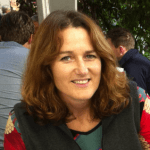
Michelle Maloney has a Bachelor of Arts and Law (Hons) from the Australian National University and a PhD in Law from Griffith University. As Co-Founder and National Convenor of the Australian Earth Laws Alliance, Michelle manages the strategic direction and governance of AELA, including the extensive partnerships and networks that AELA has with the legal, academic, indigenous and environmental advocacy communities. Michelle also designs and manages AELA programs and events, including AELA’s Rights of Nature Tribunals, the New Economy Network Australia and coordinates the work of more than 25 fantastic multi-disciplinary professional and student volunteers around Australia.
Michelle is the Australian representative on the Executive Committee of the Global Alliance for the Rights of Nature, a member of the Steering Group of ELGA, the Ecological Law and Governance Association and is the Convenor of the New Economy Network Australia (NENA). Michelle lives in Brisbane, (Queensland) with her husband, daughter and Raz the Wonderdog.
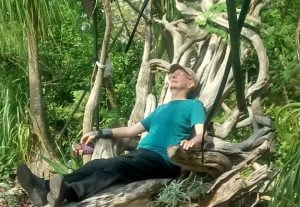
Jonathan Paul Marshall is an anthropologist and Future Fellow at the University of Technology Sydney, where he is researching the unintended consequences of climate technologies. He is concerned that Western ethics and worldviews do not allow adequate responses to the natural world, and is intrigued by the disruptive consequences of complexity theory and Analytic Psychology. He is editor of Depth Psychology, Disorder and Climate Change (JungDownunder), co-editor of Environmental Change and the World’s Futures: Ecologies, Ontologies, Mythologies (Routledge), author of Living on Cybermind (Peter Lang), and co-author of Disorder and the Disinformation Society: The social dynamics of information, networks and software (Routledge).
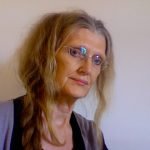
Freya Mathews is Adjunct Professor of Environmental Philosophy at Latrobe University. She is the author of over seventy articles in the area of ecological philosophy. Her current special interests are in ecological civilization; indigenous (Australian and Chinese) perspectives on “sustainability” and how these perspectives may be adapted to the context of contemporary global society; panpsychism and the critique of the metaphysics of modernity; and wildlife ethics in the context of the Anthropocene. In addition to her research activities she manages a private biodiversity reserve in northern Victoria. She is a fellow of the Australian Academy of the Humanities.
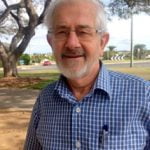
Noel Preston AM is an ethicist, theologian and social commentator. Currently adjunct Professor at Griffith University. His major current research interests are global ethics, eco-theology and progressive spirituality. One aspect of this engagement is his research and many presentations associated with the Earth Charter Initiative. Now retired, he was previously Associate Professor at QUT and founding Director of the UnitingCare Queensland Centre for Social Justice. Among his many publications are Understanding Ethics (4th ed., 2014) Federation Press; a memoir and social history: Beyond the Boundary (2006) Zeus; most recently Ethics with or without God (2015) Morning Star Publishing.
Mary Tinney will consider the contribution that ecospirituality can make toward linking values and action. Mary will draw on her background as an educator and as a person of Christian faith, along with her involvement at the community level in facilitating ecospirituality. She will explore a spectrum of approaches to ecospirituality such that you can identify the distinctiveness of your own approach. She will explore some dimensions of ecospirituality and the way in which it can make a vital contribution to linking values and action. Mary will be drawing extensively on her current doctoral research into the topic: When Heaven and Earth Embrace: How do we Engage Spiritually in an Emerging Universe?
Matt Wicking is a musician and facilitator who supports groups making positive, progressive change. He is singer-songwriter with Melbourne band
The General Assembly, facilitator of the
Future Makers Fellowship, and runs his own freelance facilitation practice for good causes,
Cloud Catcher.
Ross Williams is of the Bindal people in the region now known as Townsville. Ross has three decades’ experience working to support indigenous people’s engagement with natural resource management programs for the Queensland State government, as well as working with his own and other indigenous communities on economic development and caring for country projects. Ross is motivated by a strong desire to help indigenous groups, especially young indigenous people, create their own economic futures through local community development and economic projects.
